Flash Cards or Finger Paints: Should Academics or Play Be the Goal of Preschool?
This post may contain affiliate links.
by Amy Webb, parent, educator, and blogger at The Thoughtful Parent.
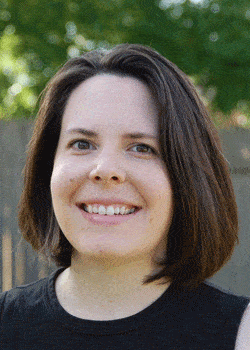
If you are the parent of a preschool-aged child, you have probably put quite a bit of thought into what type (if any) of preschool to enroll your child. If you’re like me, you had no idea how complicated a decision this could be until you started delving into the topic.
Play Based vs. Academic Preschool
One of the first things I discovered when learning about preschools is that there seems to be an emerging distinction between “play-based” and “academic” programs. On the face of it, many parents might have a tendency to gravitate towards the “academic” preschool model. Isn’t this the best way to prepare my child for the school environment he will face in the future? Isn’t a high-stakes academic environment what he/she will experience once they enter formal schooling? And herein lies the crux of this issue (in my mind). We, as parents, may feel that academic rigor is the definition of “quality” in K-12 education and so it must be the same for preschools. If we look at the research in early childhood education, however, we find this is not necessarily the case.
A quick review of the academic research on this topic reveals that this recent emphasis on “academically rigorous” preschools may, in fact, be undermining youngsters’ ability to learn and be creative. Several recent studies have compared young children’s learning when provided either (1) direct instruction about a toy from a teacher, or (2) time to explore a toy on their own with little adult instruction. The results were quite clear: preschoolers who were “taught” how to use a toy by a teacher, did use the toy as instructed; but that’s all they did. They did not try to find any other features of the toy that the teacher did not explain to them and they did not try to use the toy in new ways. By contrast, the preschoolers who were given no direct instruction on the toy, they found new features of the toy and new ways of playing with the toy that the direct instruction group never noticed. So it seems that preschoolers do learn from direct instruction, but they are not as creative or flexible in their learning as when they are just left alone to learn by playing.
Young Children Learn through Guided Discovery
This research points to a key aspect of child development that may not be readily apparent: young children do not learn the same way adults learn. As adults, when we learn a new task, most often we are given direct instruction from someone else or perhaps we read instructions from a manual. Young children, on the other hand, do not learn most effectively this way. Their form of learning is what psychologist Alison Gopnik calls “guided discovery.” This involves the child exploring an object or task in their own way while watching an adult or older child perform the task. The key difference, it seems, is that the child is not directly instructed on how to use an object or perform a task; they simply figure it out through their own exploration (i.e., play).
Of course, as children get older there is a need for direct instruction. Skills like reading and writing would be difficult, if not impossible to learn through a “guided discovery” type of learning. However, trying to provide rigorous academic direct instruction at the preschool age is essentially putting the cart before the horse. Preschoolers are still in the discovery stage; they are not yet ready for routinized learning.
Academic Preschools Lead To Long-Term Problems
In fact, this type of academic drilling may undermine their interest in learning all together. The tricky part of this equation, however, is that kids in “academic” preschools may in fact learn their ABC’s sooner and be able to recite memorized information back to adults on cue. This is appealing to us adults. I admit, the thought of seeing my toddler name numbers, letters, and even phonic sounds seems exciting. What research is beginning to show us, however, is that this immediate “payoff” in the form of routinized learning may come at the expense of a real interest and love of learning. A study by researchers at the University of North Florida showed just this. They followed 160 children who experienced three different types of preschool settings: child-initiated (e.g., play-based), academically directed, or a combination of the two. These children were followed and their academic performance tracked until fourth grade. The results showed very few differences in the children’s school performance in early elementary school. By the time the children reached fourth grade, however, the children who attended the academic-focused preschool showed a gradual decline in academic performance (i.e., grades). Of course, this is only one study, but research of this type implies that children pushed into academics too soon may miss out on a more integrative, curiosity-driven approach to learning that they will need later in life.
Preschool Should Be . . .
In many ways this research reiterates what we’ve know about preschool for awhile. The real benefit of preschool is in learning life skills like social skills, self-control, and persistence, not necessarily in any “academic” skills. Research from 30+ years of Headstart and similar programs have provided strong evidence for this. Kids who attended those preschool programs (most of whom are economically disadvantaged) did better than their peers in school and in life, but not because these programs helped increase their IQ. Researchers found it was the social skills they learned in preschool that put them ahead of their peers on many aspects of later achievement. One of the primary goals of preschool is to help students develop self-regulation and play-based preschool promotes this goal in a better, more child-friendly way. Research has continued to show that self-regulation is a better predictor of a child’s later academic success (and life success) than IQ tests or academic tests.
Sure, preschool may also help kids learn their ABCs and colors, but the interaction with peers and teachers is what really seems to matter. Well-known British pediatrician D.W. Winnicott put it this way, “It is in playing, and only in playing, that the individual child or adult is able to be creative and to use the whole personality, and it is only in being creative that the individual discovers the self.”
Bio: Amy Webb is stay-at-home mom to a 2 year old son and author of the blog The Thoughtful Parent. While completing her PhD in Human Development and Family Sciences she realized how little of the academic research about child development and parenting actually reaches the average parent. With The Thoughtful Parent she “translates” the latest child development research from academic lingo to a parent-friendly format. Amy also contributes monthly to the parenting blog Notes on Parenting.
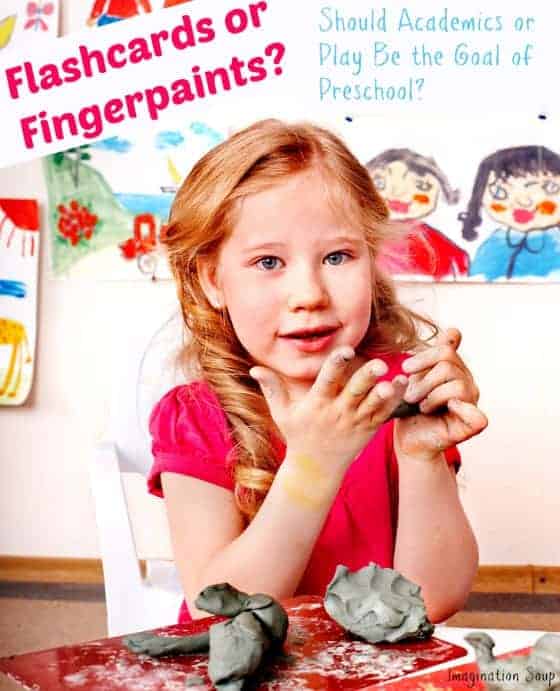
Did you read . . .
Standardized Tests – Your Rights & The Impact On Your Child
What You’ll See in a High Quality Early Childhood Environment
Watch and Learn From a Child’s Play
Unplugged Play = Happy, Creative Kids
Guided Play with Picture Books
FREE 7-Day Everyday Challenge (General: Toddlers & Preschoolers together)

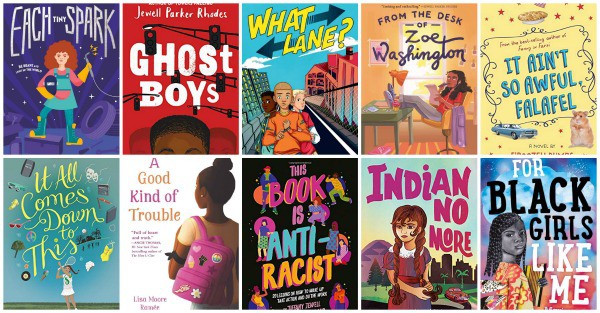
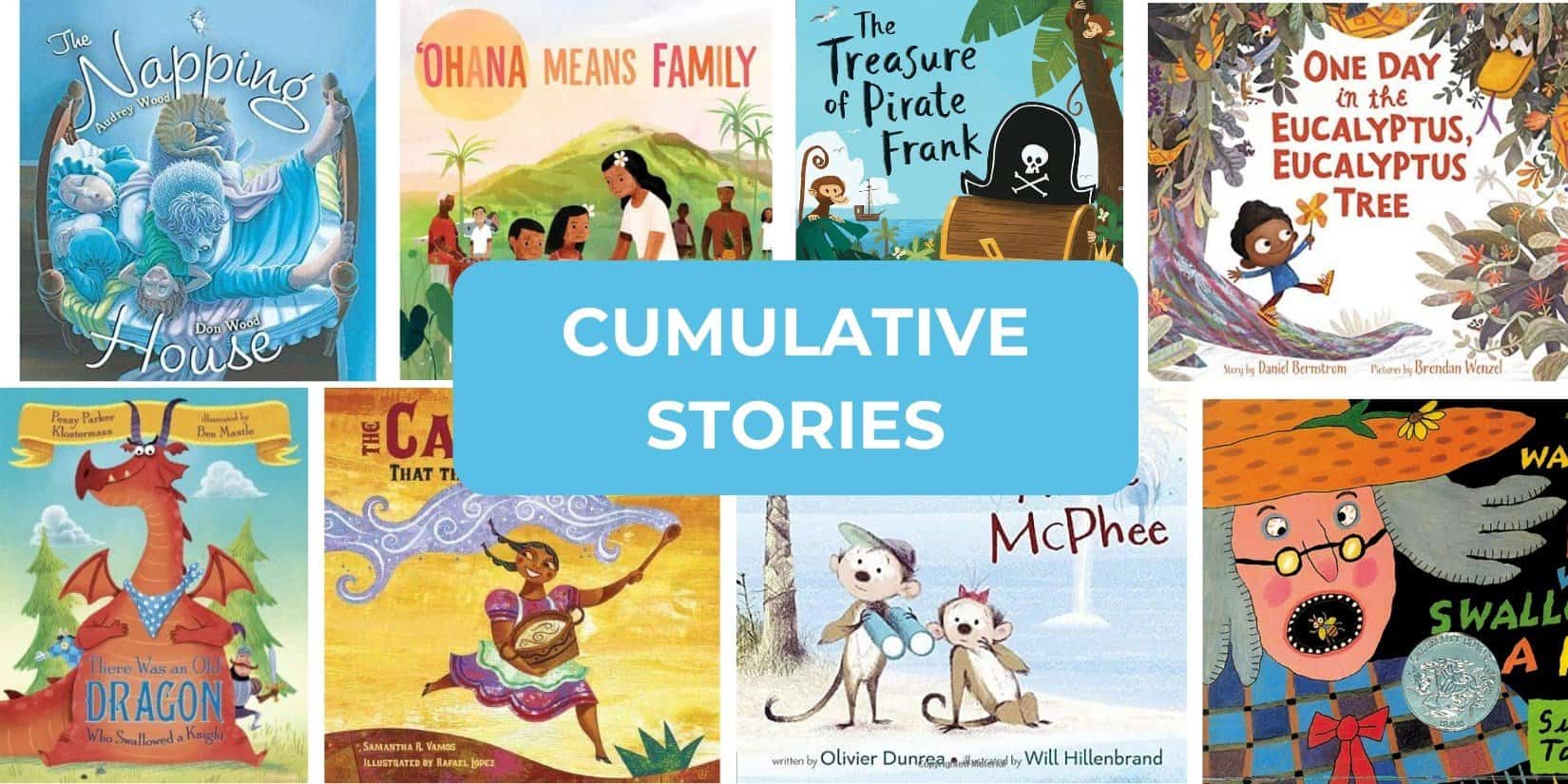
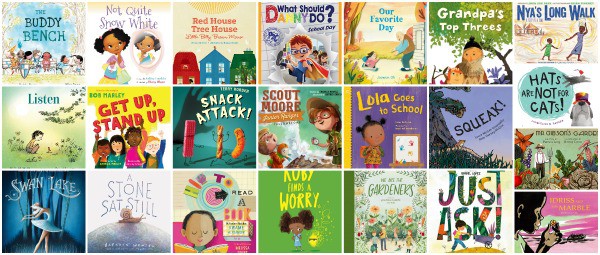
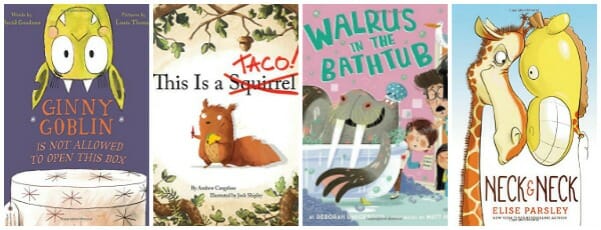
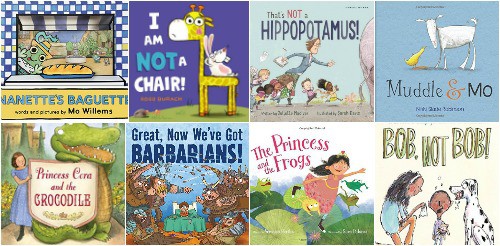
Suzita–good point! Unfortunately, this push towards testing at younger and younger grades I think has caused parents to fear their child’s performance and therefore push for an academic preschool. So sad. Let kids be kids as long as they can!
Several comments mentioned the role of guided play or role modeling and this is a great point. I think many parents hear the word “play” and think “free for all” and “chaos.” Of course, this is not what is meant by play-based preschool. This is part of the misconception about preschools and probably why many parents push for an academic approach. Perhaps the word “exploration” describes the idea better. Preschoolers should have the chance to explore their world with the help of guiding adults, but not direct instruction (e.g., a right and wrong way to explore a toy) or rote learning.
A great article, but I would go much further: the research on play based learning shows clearly that it’s not only in preschool, but in kindergarten and even in the first years of school that children learn best through play. Direct instruction models are just as damaging in kindergarten as they are in preschools, and they aren’t appropriate for young school children either.
Compare the results attained in Finland where children do not start academic instruction until they are 7. Finnish children spend the early years of education in a totally play-based system, and they aren’t taught to read until 7, yet Finland has the highest level of academic attainment in the world. And they learn to read in a few months (not years!) because they are developmentally ready to do so and they have the necessary social and intellectual skills that they have learned through play.
None of this is new – this all started back before any of us even exhisted. Study Froebel – the founder of kindergarten – and you will realize that Early Childhood Education was intended to be accomplished by providing materials for play – which lead to occupations. Education was simply and extension of what life had to offer – without shoving anything down anyones throat or turning children away from wanting to be educated. In addition we see how Maria Montessori adapted this – at first for children with special needs – she simply used educational materials as an invitation for children to play and learn. Most of those materials were also common objects used in life – hence her ‘practical life’ form of education. Now look to Reggio – this is true exploration – self driven and certainly NOT the classroom of our parents.
I like to think that I combine all that is good in education in a PLAY sense so that the children in my charge thrive and seek to learn on a daily basis!
PLAY is definitely NOT a free for all – in any classroom that provides the appropriate materials for education.
Parents tend to get only a glimpse of what their child is doing at drop off and pick up time – so I guess it can look like NOTHING is happening. So what I do is document everything we do with pictures and I provide those for parents 2 to 3 times per year. It blows their mind to see that education is taking place in that ‘crazy classroom’.
Great article, which ties in with the discussion in the Washington Post about the study published today in Pediatrics:
http://pediatrics.aappublications.org/content/early/2012/01/02/peds.2011-2102.abstract
I’ve got my MS in HDFS and am working towards my PhD in Curriculum and Instruction, so I hear what Amy is saying loud and clear. The only thing I would add to this excellent post is that we are not advocating total chaotic free play all day, which is what most people think of when they hear ‘play’. Children should have materials available that allow them to create and experiment, while a teacher is close by to answer questions, explain concepts, and guide the child to see different points of view. Learning should take place THROUGH play – not through rote learning of flash card facts.
As a professional I just can’t understand why parents aren’t listening to this message. It’s being reported in the mainstream media on a regular basis. It’s promoted by pediatricians and psychologists, as well as early childhood educators. These are the people who know how children’s brains develop. New studies are being published regularly that show this is the way to go.
There are people who argue that those of us who actually work with children advocate a play environment because it’s easier to ‘just stand around and watch kids play all day.’ This is simply not true. It actually takes much, much more thought and planning to set up, maintain, and facilitate a play based learning environment than it does to buy some flash cards or Xerox a worksheet.
Of course, I could go on about the social aspects of learning and individualized development, but I’ll get off my soapbox for now.
I like your soapbox – can I join you?
Yes, it needs to be intentional play – not a free for all. Big difference!! 🙂